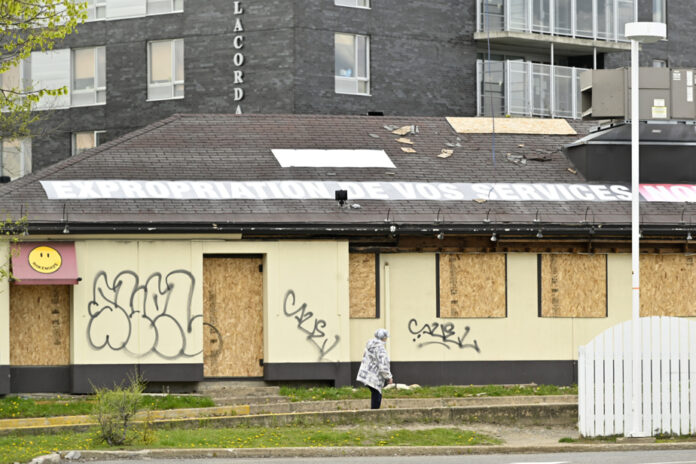Bill 22 will be adopted soon. Despite some improvements, major drawbacks persist, opponents argue. Lawyers and appraisers are also on alert because the Quebec government has decided to put into force by the end of the year the biggest reform affecting expropriation rules in 40 years.
“We are going to ask for the creation of a monitoring committee to see what the impacts of the law are on expropriated persons,” suggests Pierre Goudreau, president of the Order of Chartered Appraisers of Quebec (OEAQ), still very critical of the reform. We want to ensure that in the medium term, if we see that there are articles that really do not make sense, the government will be able to modify the law accordingly. »
An initiative supported by lawyer Sylvain Bélair. He defends expropriated people. He also presented the Bar’s brief during the special consultations on the bill.
“For my part, I’m giving training to the Canadian Bar this week,” he confides. The need is pressing since the date of entry into force of the new law has been brought forward.
Six months after its adoption, the implementation of the reform was in fact brought forward by Minister Geneviève Guilbault to 30 days, that is to say by the end of the year.
“In consultation, 21 groups asked us to bring forward the entry into force,” writes Léonie Bernard-Abel, press secretary to the Minister of Transport responsible for the bill. Moreover, their request was that it be effective as soon as the sanction was imposed. We decided to give the Administrative Tribunal of Quebec and all the partners involved in this matter time to adjust their tools. »
Approved appraisers feel rushed. “With the current law, if it is passed as is, we absolutely must amend our standards of practice because, otherwise, our expert evaluators will have to work against their standards of practice, that gives you an idea,” notes the president of the OEAQ.
Under the reform, the real estate compensation to be paid to the expropriated party must consist of the market value of the property to which is added a series of compensation, some capped, to compensate for the damage.
In comparison, the rules in force for 40 years regarding expropriation first determine the best and most profitable use of the property and then set the compensation on the basis of the optimal use of the value to the owner . In addition, the damage directly suffered is fully compensated.
The detailed study of the bill in parliamentary committee ended on November 9. Here are the reasons for dissatisfaction that remain, according to opponents, and the main improvements to the bill.
In the case of the owner of a single-family residence, the bill sets the compensation no longer on the date of dispossession, as provided for in the current law, but on the date of the notice of expropriation, in article 86, a major disadvantage according to Pierre Goudreau.
“Let’s imagine for a moment a notice of expropriation sent at the start of a public transport infrastructure project in 2019 and taking possession of the residence in 2023,” explains Mr. Nikolas Blanchette of Fasken. He represents expropriated people. The owner will be forced to sell his residence at the 2019 price to buy another at the 2023 price. The shortfall seems obvious. »
Articles 102 and 103 exclude a series of damages causing harm resulting from the expropriation such as loss of profit following it.
For Me Blanchette, articles 75 and 76 do not exclude an expropriating body from associating the concept of market value with the historical acquisition cost. “Certain representations made by public body lawyers suggest that it is the historical acquisition cost that we must pay and not the market value,” he says.
Section 94 has been removed. It arbitrarily capped the compensation to be paid in a case of redevelopment or relocation following expropriation at 135% of the market value. “We had very serious concerns about the bill [in its initial form], it was extremely harmful for agricultural producers,” replies Charles-Félix Ross, CEO of the Union of Agricultural Producers. In its current form, the bill is much less harmful. »
Articles 170 and 171 relating to the recourse in matters of disguised expropriation were removed from the bill, but Minister Geneviève Guilbault indicated that they will resurface in a future bill from the Minister of Municipal Affairs .
These articles allowed a City having carried out disguised expropriation (by changing the zoning to prevent any development) to simply modify a posteriori the zoning regulations covered by the Court’s decision instead of paying the owner the compensation decided by the Court. the tribunal.
The ceiling provided for certain compensation has been revised upwards. Thus, the convenience value (residential only) increased to a maximum of $30,000 and the compensation for disturbances and annoyances to $10,000.















